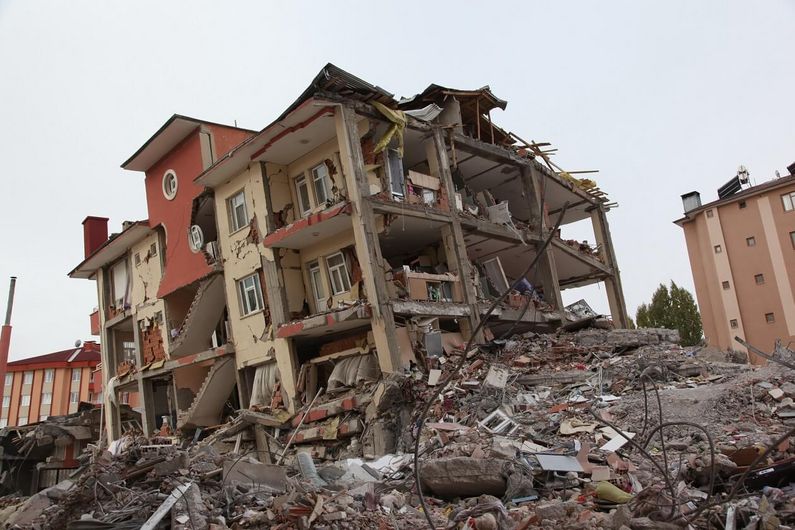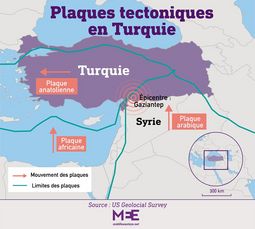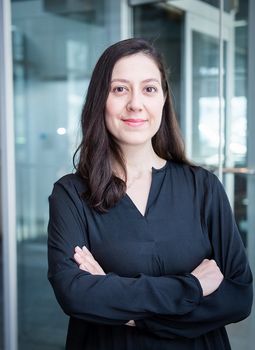Earthquakes in Turkey: a predictable and deplorable tragedy
- UdeMNouvelles
02/16/2023
- Martin LaSalle
Fatma Özdoğan, an architect and UdeM doctoral student, hopes that her research into post-disaster reconstruction will help prevent tragedies like the one that occurred in Turkey, her home country.
In a sad irony, just weeks before the tragedy the Turkish-born architect had come to Université de Montréal's Faculty of Planning to start her PhD on disaster management analysis and post-disaster reconstruction.
Surrounded by two major tectonic faults (North Anatolian and East Anatolian), Turkey is frequently hit by disasters caused by earthquakes and the resulting floods and landslides.
In fact, over the past 50 years, no fewer than 110 major earthquakes have occurred in this country of 85 million people.
Some of the deadliest earthquakes include one in 1999 in the northwest of the country (in the Marmara region where Istanbul is located), which killed 17,000 people; the 2011 Van earthquake, which killed more than 600 people; and, most recently, the 2020 İzmir earthquake, which killed 117 people.
'Important lessons learned'
"Following the 1999 earthquake, important lessons were learned in terms of engineering, architecture and urban planning," Özdoğan recalled. "The government tightened building regulations and created AFAD, the government authority responsible for the country's disaster management system."
Then, after the 2011 Van earthquake, Turkey's Urban Transformation Law came into effect. "This law would have been very successful if it could have been implemented in all urban cities, but that was not the case," Özdoğan said.
As a result, it is estimated that two-thirds of Turkey's housing stock is not earthquake-resistant. Morover, there is not enough inspection of construction work, and so "the industry is being left in the hands of contractors who use poor quality materials and labour," said Özdoğan.
The industry is also rife with political meddling, she added. "The situation we see today is the result of a political process that has been going on for 20 years, namely the zoning amnesties that forgive and formalize buildings built by people who did not use professional architects and engineers."
Furthermore, she noted, the quality of Turkish university education in architecture and building engineering is questionable, especially due to the lack of qualified professors. "In Turkey, education in these fields should be at a higher level and a common literature should be created, so that students have the same knowledge when they graduate," she insisted.
As it stands, "every architect and engineer who graduates from undergraduate studies in Turkey has the power to sign off on projects," she added, "and there is no professional qualification process, which increases the risk that these young, inexperienced colleagues will make mistakes."
Started university at 17
After starting her university studies at the age of 17, Özdoğan obtained her bachelor's degree in architecture at the Yıldız Teknik School of Engineering in Istanbul. She then completed an MSc in Development and Emergency Practice at Oxford Brookes University, in England.
Her dissertation there focused on the consequences in major Turkish cities of immigration arising from disasters and the conflict in Syria. She also carried out research assignments in Colombia, Lebanon and France, where she learned French.
She then carried out several professional mandates in Turkey and internationally, notably in Azerbaijan and Qatar, where she supervised the construction of the Al-Thumama stadium for the 2022 World Cup.
Eager to join UdeM's Disaster Resilience and Sustainable Reconstruction Research Alliance
Özdoğan started her PhD here in January under the direction of Professor Gonzalo Lizarralde. author of the 2021 book Unnatural Disasters. She wants to contribute to the research group by sharing lessons from Turkey.
"My research interests are in disaster management and the reconstruction of cities affected by disasters, including the analysis of the relationship between how a country organizes its response and the subsequent stages of reconstruction," Özdoğan said.
"My work aims to understand the needs of communities and to propose sustainable solutions to bridge the gaps between needs and services provided."
She added: "Above all, I hope that my research will help prevent tragedies like the one in my country from happening again, both in Turkey and in other disaster-prone regions of the world. With climate change and urban populations increasing everywhere in the world's major cities, risk-management research will help us all better prepare and respond."












